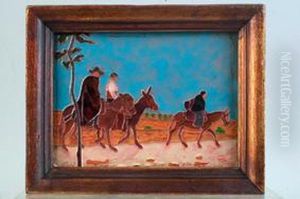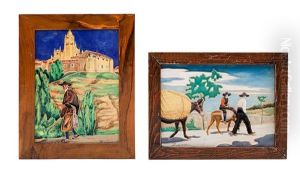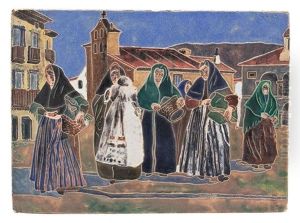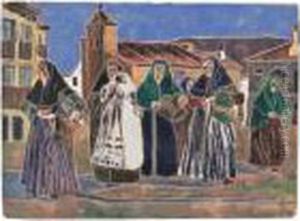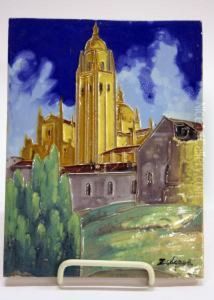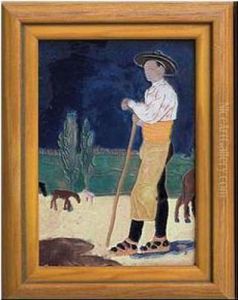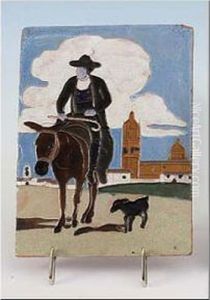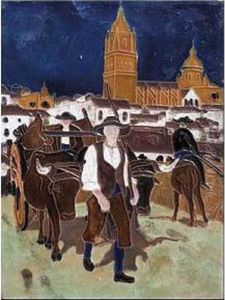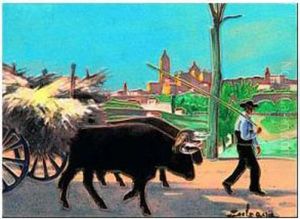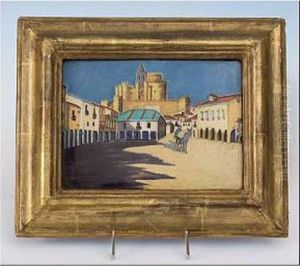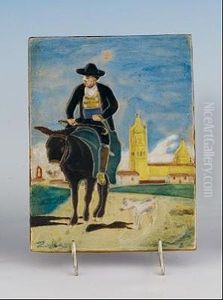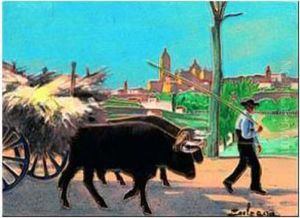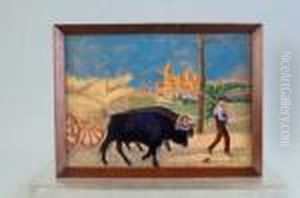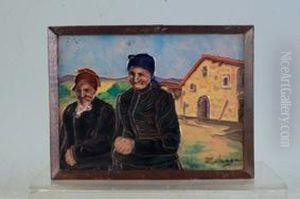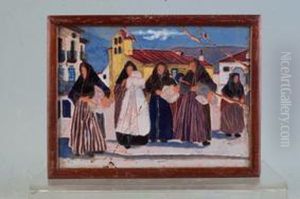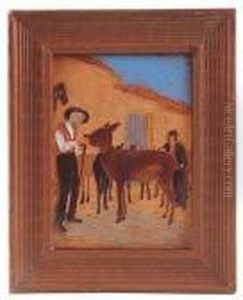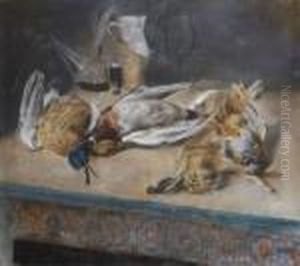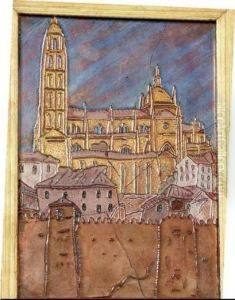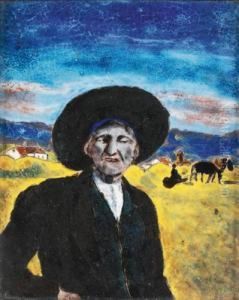Daniel Zuloaga Boneta Paintings
Daniel Zuloaga Boneta was a Spanish ceramicist and painter, born on March 22, 1852, in Madrid, Spain. He was part of the Zuloaga family, which included several notable artists. Daniel’s grandfather, Eusebio Zuloaga, was a famous armorer, and his brother, Ignacio Zuloaga, was a well-known painter. Daniel initially began his artistic career as a painter but became renowned for his work in ceramics, revitalizing the craft with his innovative techniques and designs.
Zuloaga's interest in ceramics was sparked by his study of traditional Spanish pottery, particularly the work from the town of Talavera de la Reina. He traveled extensively in his youth, studying in Rome, Paris, and several other European cities, where he was influenced by the arts and crafts movement. Upon returning to Spain, he established his own workshop in Segovia in 1893, which became a center for ceramic arts.
Throughout his life, Daniel Zuloaga sought to elevate the status of ceramics as a fine art. He worked tirelessly to perfect his craft, experimenting with glazes and firing techniques, and his work often reflected a blend of traditional Spanish styles with Art Nouveau and Symbolist influences. Zuloaga's ceramics were celebrated for their rich decoration and intricate details, often featuring portraits, historical scenes, and nature motifs.
Zuloaga's contributions to the field of ceramics extended beyond his own creations. He was a mentor to many younger artists and played a significant role in the revival of the Spanish ceramic tradition. His work was exhibited internationally, gaining him recognition and awards, including a gold medal at the Universal Exposition in Paris in 1900.
Daniel Zuloaga Boneta's legacy lives on through his works, which can be found in various museums and private collections around the world. His dedication to the craft of ceramics and his influence on the art world lasted until his death on December 27, 1921, in Segovia, Spain. Zuloaga's work remains a testament to the vibrant cultural heritage of Spain and the timeless appeal of its traditional arts.
